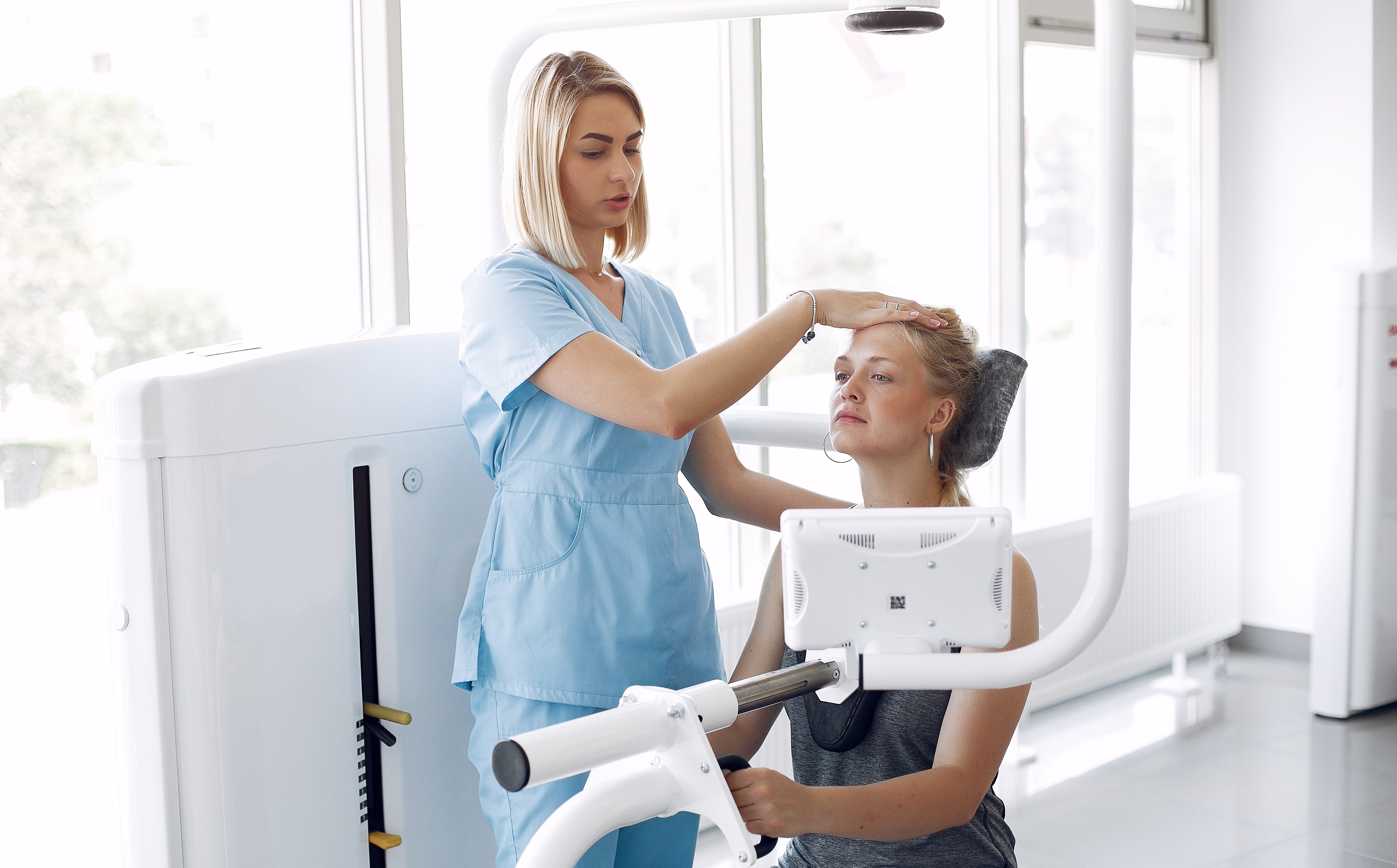Electrotherapy Physiotherapy
Using electrical energy in medical healing and treatment of our body has been known since ancient times.
It has been observed that the human nervous system is sustained through electrical signals that are
responsible for all bodily activities.
Electrotherapy simply involves external intervention in targeted areas of the body to stimulate the
nervous system through the use of current towards achieving various muscle activities, tissue activities,
pain relief, blood circulation etc.
Usually, Electrotherapy is performed by experienced practitioners in combination with other medications or exercises to achieve the best possible results. Electrotherapy is a minimally invasive method that uses battery-powered devices, wires and adhesive pads that are applied to the skin to deliver small signals of electrical energy. It involves no pain and the patient undergoes deep relaxation. Sometimes, a slight tingling and/or vibration may be experienced.

There's not much scientific research and literature on what kind of problems can be treated using Electrotherapy but it is increasingly being used as an alternative to medicine in alleviating pains and causing relaxation.
How does Electrotherapy work?
Electrotherapy works by interfering with pain triggering nerve signals. It stimulates the release of endorphins that cause a soothing feeling, stimulates the muscle tissues to induce relaxation and increased blood circulation.
When is it used?
It's used in the following cases:
- Nerve Pains
- Muscle Pains and Spasms
- People Going Through Exercise Therapies
- Arthritis
- Healing Wounds
- Muscle Atrophy
- Increase in Blood Circulation
Types of Electrotherapy?
- Transcutaneous Electrical Nerve Stimulation (T.E.N.S.)
- Percutaneous Electrical Nerve Stimulation (P.E.N.S.)
- Electrical Muscle Stimulation (E.M.S.)
- Low-Intensity Pulsed Ultrasound (L.I.P.U.S.)
The type of Electrotherapy prescribed is different for patients as it depends on their physical and medical conditions and the core problem they're facing.
Transcutaneous Electrical Nerve Stimulation (TENS)
Transcutaneous Electrical nerve stimulation is the most popular method used in case of alleviating pains. It's the best alternative to the use of medications and is simple in the method. It involves equipment that patients can carry in their hands that can be covered by regular clothing. The frequency and intensity can be modulated to create relaxation in the targeted area of the body.
It's mainly used to for
- Chronic Pains
- Acute Pains Resulting from Severe Injuries
- Lower Back Pain
- Knee and Joint Pains
- Arthritis etc.
Percutaneous Electrical Nerve Stimulation (P.E.N.S.)
It's used as an alternative when T.E.N.S. doesn't work and involves similar equipment to generate current. But this method uses needles to penetrate deeper into the skin to reduce muscle spasms and reduce pain. Every patient's response is different, and it may involve multiple sessions for some before seeing a significant change.
Electrical Muscular Stimulation (E.M.S.)
It is mainly used for muscle contraction to strengthen the weak muscles and relieve intense pain by stimulating the surrounding nerves. Usually, it involves relatively high currents that are equal to the necessary nervous stimulation.
Low-Intensity Pulsed Ultrasound (L.I.P.U.S.)
It's used for bone repair and fracture healing. It involves using ultrasound waves to pass through the body tissues to trigger the natural healing process and thereby helping the speedy recovery of fractured bones. Many other types of Electrotherapy are used in various problems, such as Pulsed Shortwave Diathermy (P.S.W.D.), Functional Electrical Stimulation (F.E.S.), Ultrasound Electrotherapy, Interferential electrotherapy, and Laser electrotherapy. Electrotherapy is gaining popularity as a zero-invasive method, and it can be used where medications may not help relieve patients of severe pain.
- Electrotherapy
- Soft Tissue Mobilisation Physiotherapy
- Exercise Programme Physiotherapy
- Manipulation and Mobilization Physiotherapy
- Acupuncture
- Massage Physiotherapy
Our Services For
NHS
We have a specialised body of knowledge and skills and can provide physiotherapy services across a range of settings, working either independently.
Insurance
Ann Physiocare is registered with all major Health Insurance providers, we always do our best to make your insurance process as smooth as possible.
Pay As You Go Individuals
We are able to assist individuals with a wide range of issues without the need for public or private funding.
